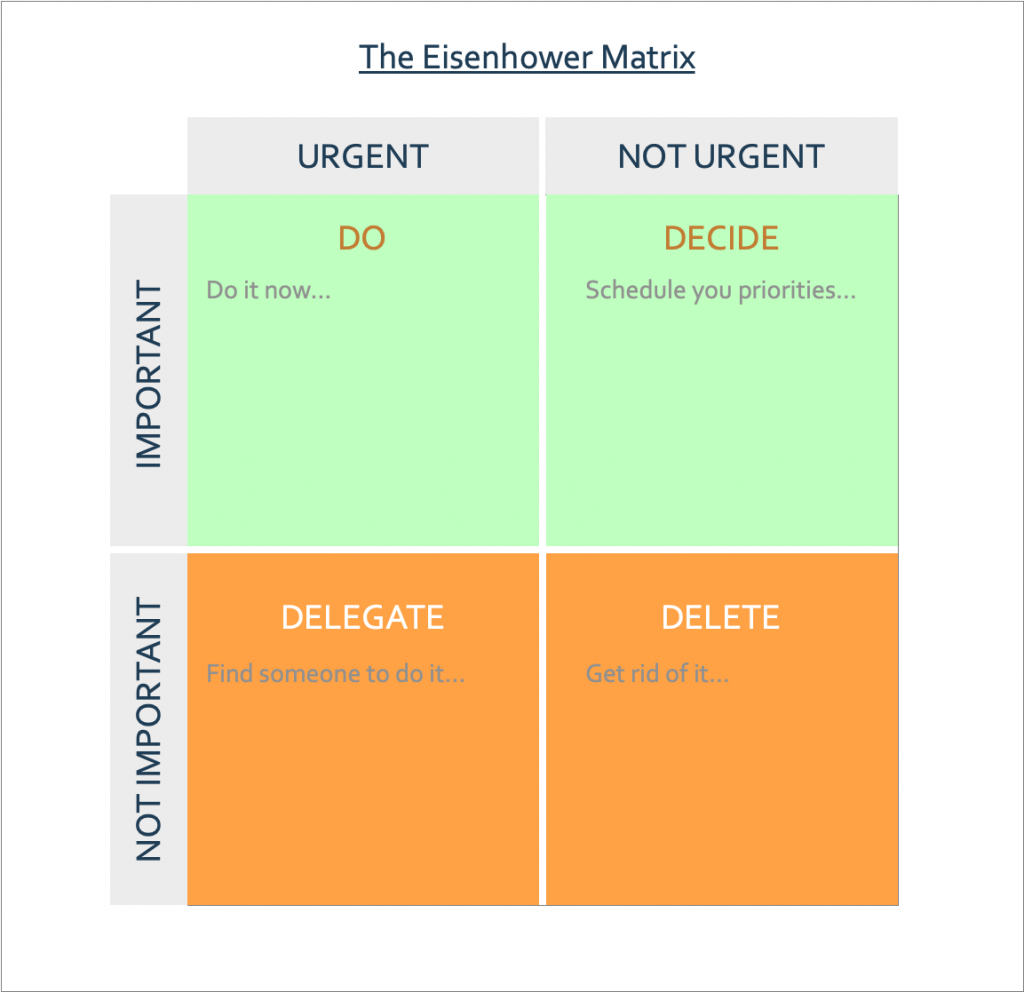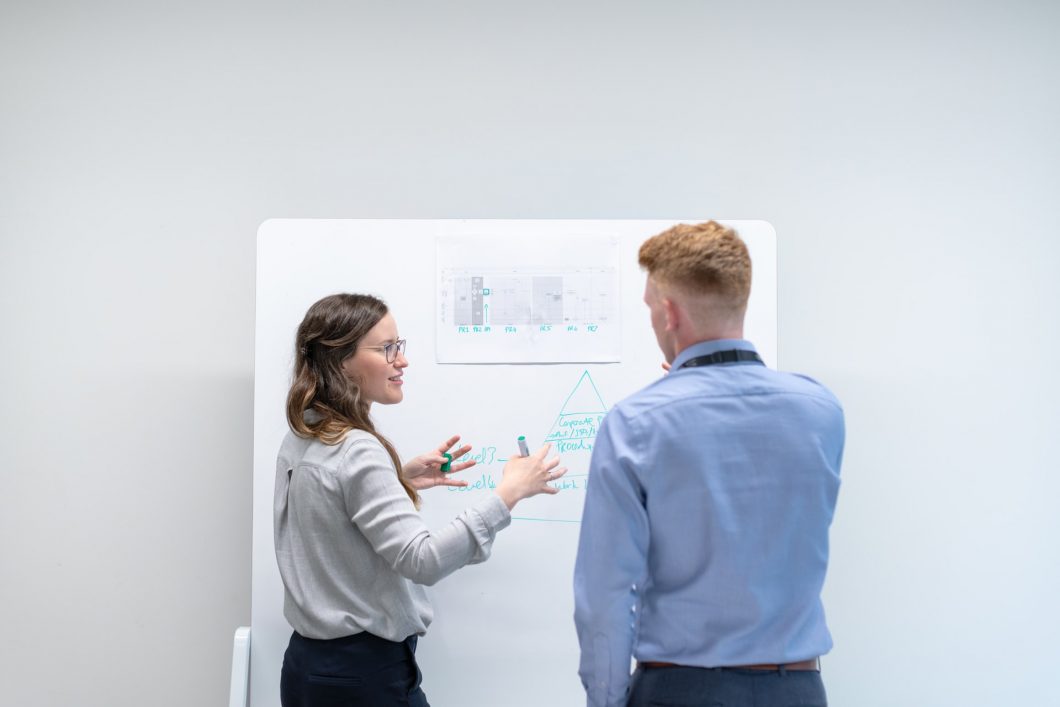How could too much work unlock better leadership?
As our careers progress people expect more of us. We accumulate teams, projects, products and responsibilities. If we are not mindful and conscious in relation to how we lead it is easy to miss things, to feel overwhelmed and stressed or to become so caught up in the day-to-day that our strategic ambitions fall by the way side.
This is where the art of delegation is helpful.
Traditional wisdom often directs people to using the Eisenhower four box model, shown below, but people are not stupid. It doesn’t take people long to figure out what is happening and the delegatee will soon see that they are being assigned tasks that the delegator feels are beneath them. This might get the job done in the short term but study after study has shown that visionary and inspirational leadership creates better business results and more engaged people than a command-and-control model.
So in this modern age as we strive to build adaptive, agile organisations where people are empowered and purpose driven can we do better for the people we work with, our organisations and ourselves?
What do our future organisations and personal lives need us to be doing now to engineer the future state we wish to work towards?

Is the Team is the difference?
Pat Lencioni author of the hugely popular Leadership fable “The 5 dysfunctions of a team” says…
“Not finance. Not strategy. Not technology. It is teamwork that remains the ultimate competitive advantage, both because it is so powerful and so rare.”
If this is true, could we be working with our teams differently to help engineer better results all round?
If we accept these concepts as valid or worth exploring:
- Teams make the difference
- Inspired people do better work and are likely to stick around longer
- Building the next generation of leaders is part of leadership
- Effective and fast decisions are made close to where the work is done, when the knowledge is there too
then this gives us a different challenge and opportunity.
Instead of delegating being the challenge, then sharing the work amongst our teams becomes another opportunity to build cohesion, engagement and leadership.
As a leader the challenge then shifts from owning and delegating work to setting up teams and structures where work is done, knowledge is shared and responsibility and leadership are developed at all levels.
Happy byproducts of this are that we also reduce silos of knowledge, build better relationships, develop strategic thinkers and create the space and time to allow ourselves and others to engage in the impactful work that drew us to our roles in first place. We are also developing the scalable and sustainable leadership behaviours that will allow us to progress our own careers.
